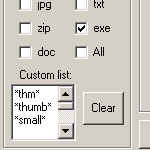Up until last year, I had been happily plugging along working on various projects – both Rails based and PHP-based – and trying to put more and more stuff into open source until some of the issues what were being opened on my PHP-based projects kept mentioning something about PSR-0.
What is PSR-0?
People kept referencing it, no one linked to it, and it more-or-less an assumed standard that I, along with other PHP-developers, should know. But I’m not afraid to admit that, at the time, I’d no idea what it was.
As I see more and more activity happening around WordPress, and I see about the same amount of code documentation happening for projects – that is, not so much – I thought it’d be worth answering “What is PSR?” as well as the other three variants.
After all, I’d been working in WordPress and with PHP for years prior to hearing about it, and I still had to look it up. Perhaps that’s a problem of my own, but I’m completely okay owning that.
But hopefully this post will save someone else from having to look more deeply into it.
Continue reading





